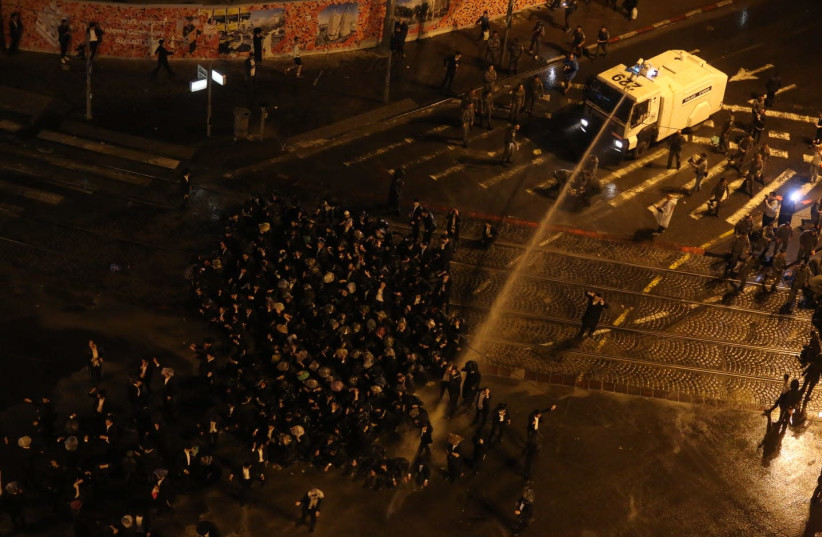A government bill to increase ultra-Orthodox enlistment to the IDF was submitted to the Knesset on Wednesday with drastically lower enlistment rates than a previous version of the bill.
The legislation is likely to be advanced only after the state budget is passed, which must happen before November 14.
The bill sets out annual targets for the number of ultra-Orthodox men to be enlisted per year beginning in 2021, with very slowly increasing rates of enlistment for the annual cohort of ultra-Orthodox men turning 18.
Should enlistment targets not be met, the bill provides for a reduction in the state budget for yeshivas, money that is distributed to recognized yeshivas for the purposes of paying students a monthly stipend.

The bill also temporarily reduces the age of exemption to 21 in order to encourage ultra-Orthodox men to enter the workforce, and over the course of three years then raises the age of exemption up to 23.
The bill was originally introduced in 2018 by the current finance minister, then defense minister, Avigdor Liberman when the coalition also included ultra-Orthodox parties United Torah Judaism and Shas, which initially indicated they would not oppose the legislation but eventually came out against it.
In the original bill, however, the enlistment target for the first operative year of the legislation, 2018, was 3,996 men from the ultra-Orthodox sector, followed by 4,317, and steadily increasing from that point.
The new version of the legislation sets the enlistment target for 2021 at just 2,123, 2,293 for 2022, and very slowly increasing targets from then on up to 2036.
One reason behind the severe reduction in the target figures could be the scandal over official IDF enlistment figures, which it was revealed in 2019 had been falsified to higher numbers than were enlisting in reality.
Since the real numbers of ultra-Orthodox men enlisting in practice were far lower than originally thought, the new legislation appears to be taking into account this changed circumstance.
UTJ issued a statement opposing the legislation on Wednesday after it was submitted to the Knesset.
“This is a bad law which establishes targets, and threatens sanctions against yeshiva students, in total opposition to what has been the case in Israel for years,” said the party.
“There is not and will not be any possibility of restricting the number of yeshiva students, and anyone who wants to learn Torah must be allowed to do so without quotas and restrictions.
“Yeshiva students who study as their profession are the elite of the Torah world who guard and protected the Jewish people for all generations.”
